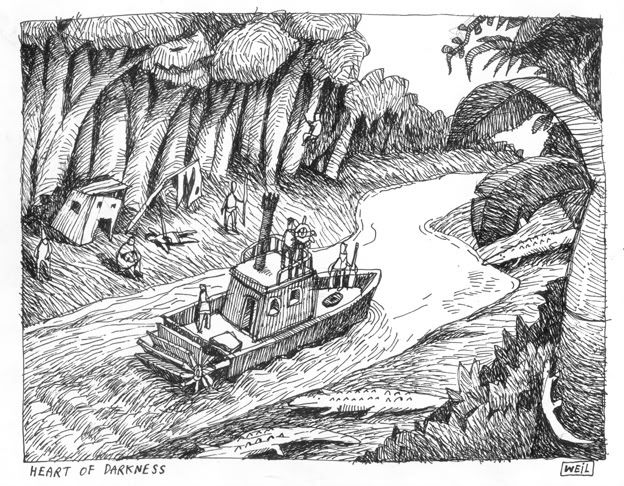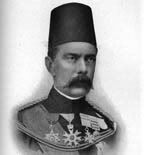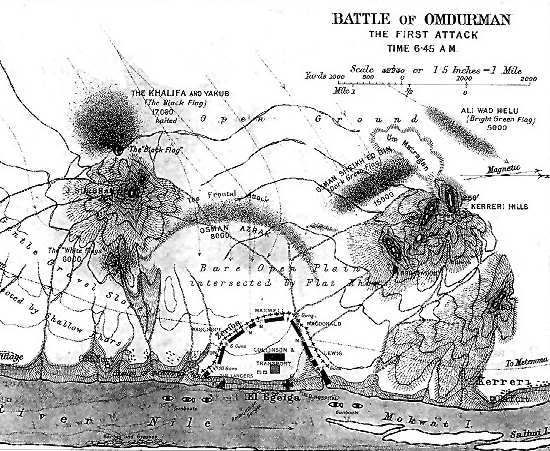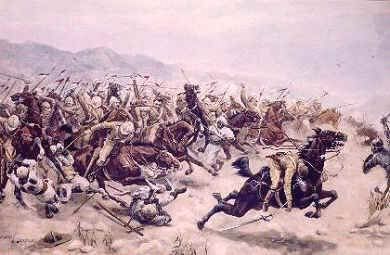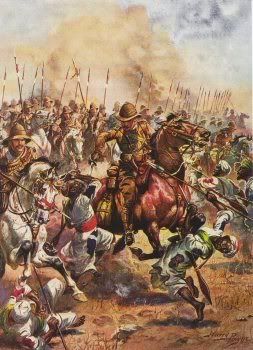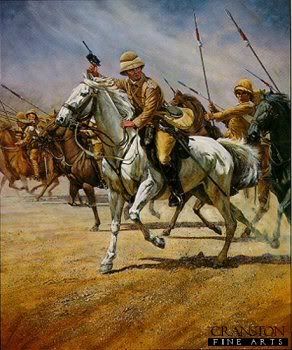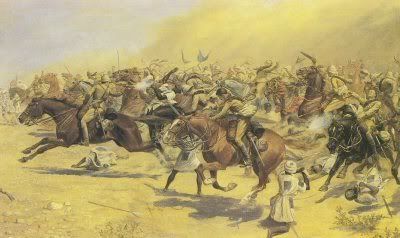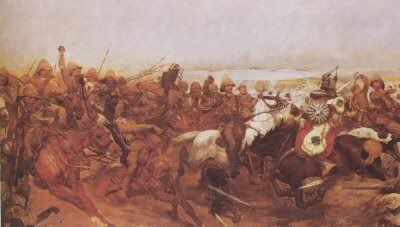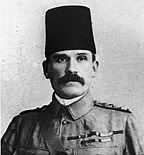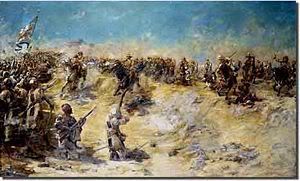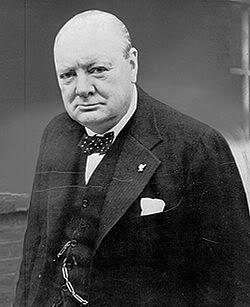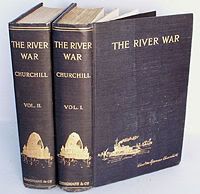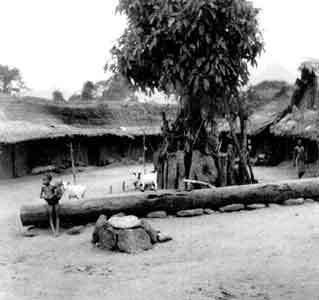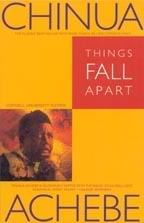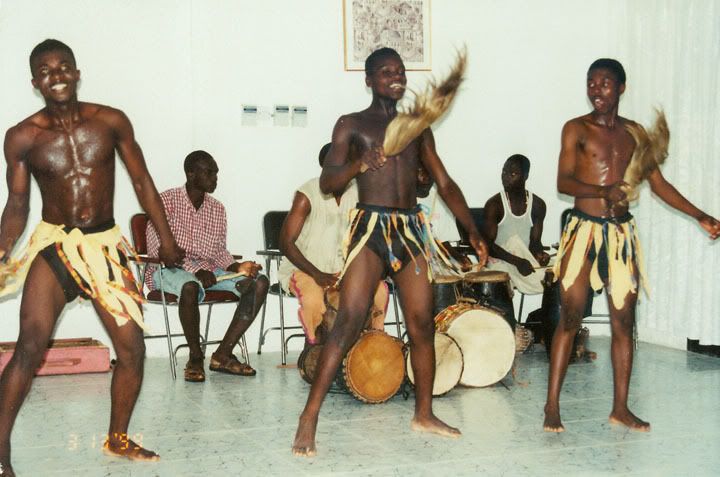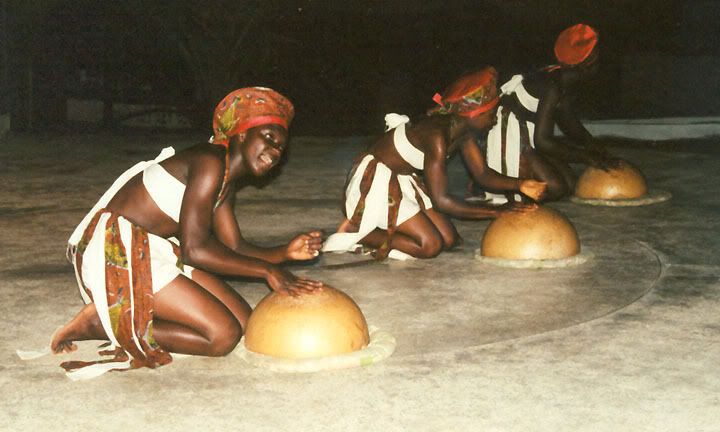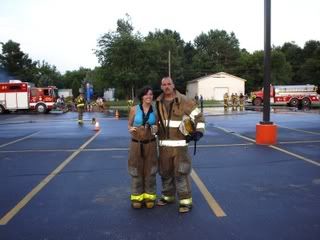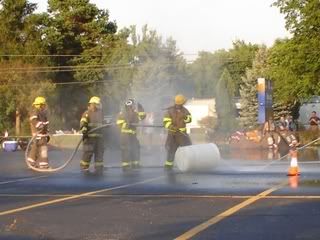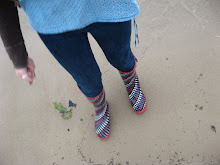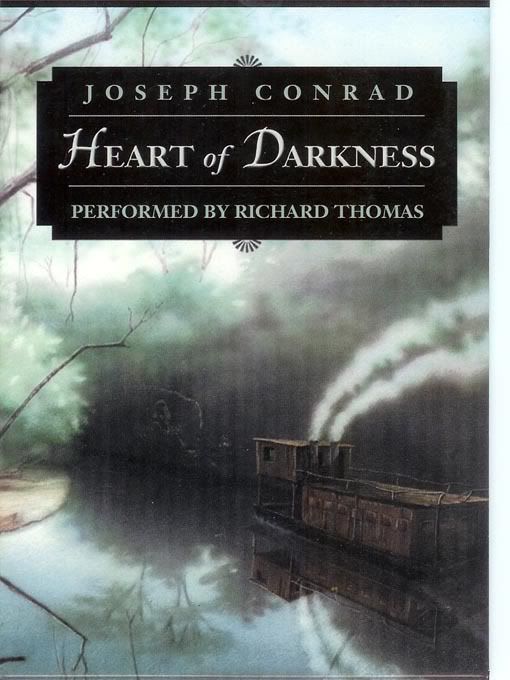
The Heart of Darkness started off pretty strong, the use of description was really great but I think at parts it just took away from the story. I feel like it was good but after a while I was just like "Dude, get on with the story!"
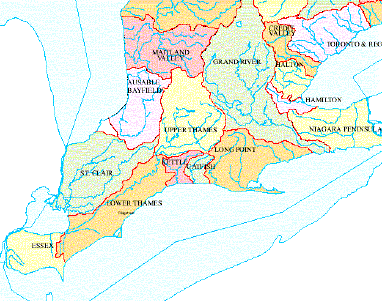
I thought it was very interesting how Fresleven was killed in a "scuffle" over hens, and then he was left to die because the people were so superstitious that they had to move on. That is a very weird custom to me, I wonder why they didn't just move his body to a forest or bury it? Did they not believe he deserved a burial?
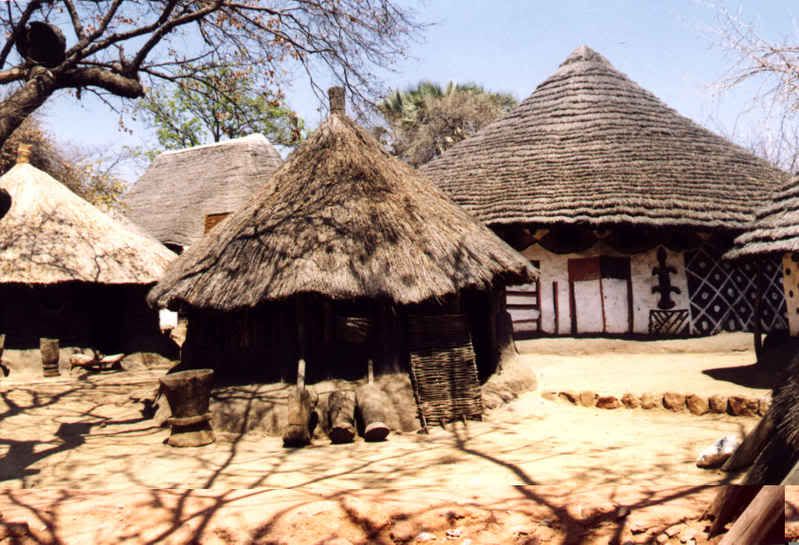
I'm sure that the uneasiness felt by Marlow and his company did not change much after the laborers dance to the grass shed which held goods burning down. But at the same time, I wouldn't blame them, with the mistreatment they have seen, I would have done the same. But it was unfair to just accuse one of the natives and beat him, when it could have well be anybody or even maybe it was the weather that caused it.
I was really intrigued by the mystery of Mr. Kurtz, who throughout the book is not present but mentioned a lot. It made me wonder what was truly going on with him.But I do not trust the brickmaker when he told Marlow that he was "a favorite of the administration." In my eyes, Marlow hasn't done enough at this point to make an impact at all. I felt like there may have been a conspiracy going on at this point. But I don't know, Until the brickmaker reveals his promotion that was taken away and then he threatens Marlow. Is that what happened to Kurtz?
Through most of the description Kurtz sounds like a jerk. It seems his morals may be in tact but he is a man who is very authority-driven in his way.
The mysteries keep coming as the Eldorado Expedition disappears into the wilderness, and I wonder what kind of conspiracy lies within this group of men....
